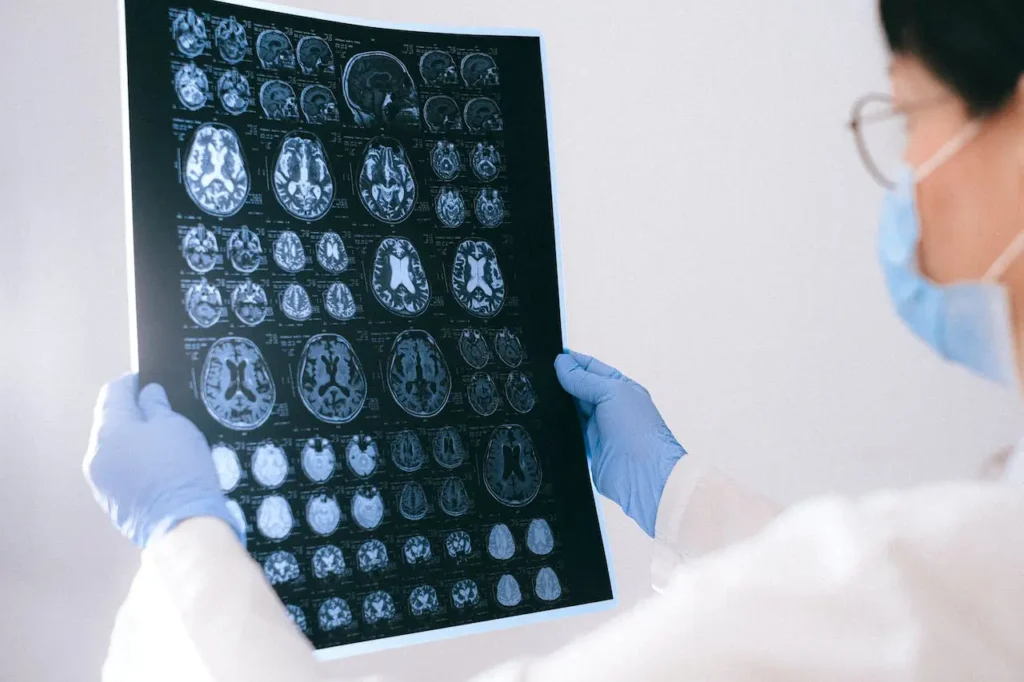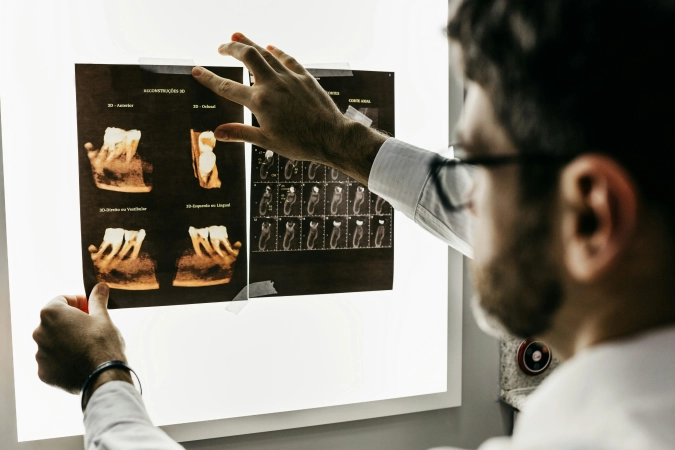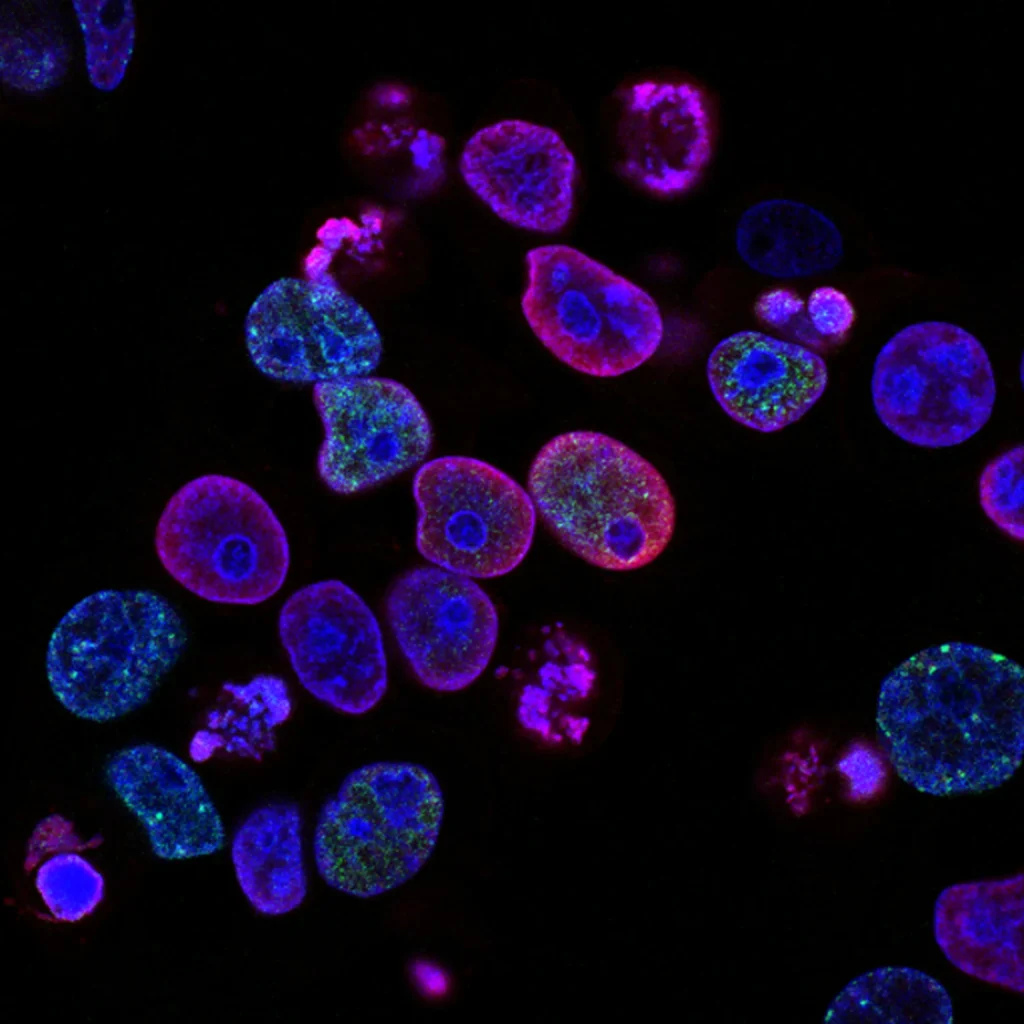Empathetic Cancer Caregiving: Powerful Tips and Resources
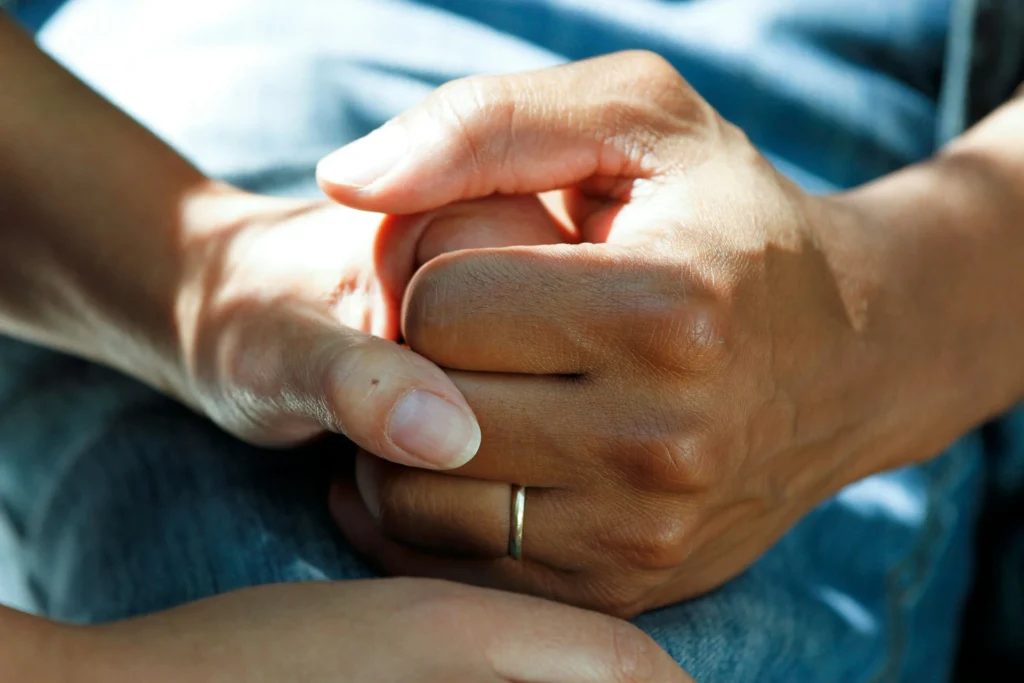
- Caregiving for Chemotherapy Patients: A Guide for Caregivers
- Understanding the Challenges of Caregiving for Terminal Cancer Patients
- Tips for Supporting Elderly Loved Ones Through Cancer Treatment
- Managing Cancer Pain in Seniors: Strategies for Caregivers
- Creating a Cancer Diet for Elderly Patients: Nutritional Support During Treatment
- Caregiving for Elderly with Terminal Cancer: Navigating End of Life Care
- Finding the Right Oncology Near You
- The Importance of Emotional Support for Cancer Caregivers
- Resources for Cancer Caregivers and Patients: Support Groups, Counseling, and More
- Conclusion
- Frequently Asked Questions (FAQs)
This post may contain affiliate links, meaning I may earn a commission if you make a purchase, at no extra cost to you. I only recommend products I trust. Thank you for your support.
Cancer is a battle that affects not only the individuals diagnosed with the disease, but also their loved ones. Cancer caregivers play a crucial role in providing support, comfort, and strength to those undergoing treatment.
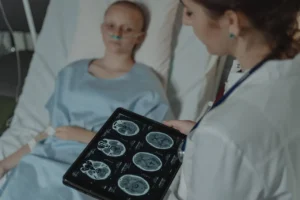
Cancer caregivers dedicate their time, energy, and emotions to ensure that cancer patients receive the care they need. Whether it’s a spouse, family member, or friend, cancer caregivers are the pillars of strength throughout the entire journey.
Caregiving for Chemotherapy Patients: A Guide for Caregivers
Chemotherapy is a common treatment for cancer, and being a caregiver for someone undergoing this intense therapy can be challenging.
As a caregiver, it is important to understand the process and provide the necessary support. Here are some tips to help you navigate the caregiving journey for chemotherapy patients:
- Educate yourself: Learn about the chemotherapy treatment plan, its side effects, and how to manage them. This knowledge will empower you to provide better care and support.
- Be present: Accompany the patient to chemotherapy sessions, offering emotional support and companionship. Being there physically can make a significant difference in their experience.
- Manage side effects: Chemotherapy often comes with side effects such as nausea, fatigue, and hair loss. Help the patient manage these symptoms by ensuring they take prescribed medications, providing a comforting environment, and offering nutritious meals.
- Emotional support: Understand that chemotherapy can take a toll on the patient’s emotional well-being. Be a compassionate listener, offer words of encouragement, and provide a safe space for them to express their fears and concerns.
By following these caregiving tips, you can provide the essential support needed by chemotherapy patients, helping them through this challenging phase of their cancer journey.
Understanding the Challenges of Caregiving for Terminal Cancer Patients
When cancer reaches its terminal stage, the caregiving role becomes even more crucial and emotionally demanding. Providing care and support for someone with terminal cancer requires immense empathy and strength.
Here are some challenges that caregivers may face in this situation:
- Emotional turmoil: Witnessing a loved one’s life decline can be emotionally devastating. Caregivers may experience feelings of grief, helplessness, and anticipatory bereavement. It is important to seek emotional support and find healthy ways to cope with these emotions.
- Physical care: Terminal cancer patients often require extensive physical care. This can include assistance with personal hygiene, medication management, pain management, and mobility support. Caregivers should be prepared to provide these services while ensuring the patient’s comfort and dignity.
- Communicating with healthcare professionals: Caregivers may need to effectively communicate with doctors, nurses, and other healthcare professionals to ensure that the patient’s needs are met. It is essential to advocate for the patient and ask questions to fully understand the treatment options and plans.
- End-of-life discussions: As the disease progresses, discussions surrounding end-of-life care become necessary. Caregivers play a vital role in facilitating these conversations, ensuring that the patient’s wishes are respected and providing emotional support during these difficult discussions.
Caregiving for terminal cancer patients is a challenging and sensitive journey. It requires caregivers to be resilient, compassionate, and understanding as they navigate the complexities of providing care during this stage.
Tips for Supporting Elderly Loved Ones Through Cancer Treatment
Cancer can affect individuals of all ages, including the elderly. If you are caring for an elderly loved one undergoing cancer treatment, here are some tips to support them through this challenging time:
- Understand their unique needs: Aging can bring its own set of challenges, so it is important to consider the specific needs of elderly cancer patients. This may include mobility assistance, modifications to the living environment, and addressing age-related health concerns.
- Coordinate medical appointments: Elderly patients may have multiple medical appointments and treatments. As a caregiver, help them manage their schedule, accompany them to appointments, and ensure that they receive the necessary medical care.
- Provide emotional support: Aging can sometimes make cancer treatment more overwhelming. Offer emotional support by spending quality time with your loved one, engaging in activities they enjoy, and being a compassionate listener.
- Encourage a healthy lifestyle: A nutritious diet, regular exercise, and ample rest are important for anyone undergoing cancer treatment. Help your elderly loved one maintain a healthy lifestyle by providing them with nutritious meals, assisting with gentle exercise routines, and ensuring they have enough rest.
Supporting elderly loved ones through cancer treatment requires patience, empathy, and a deep understanding of their unique needs. By providing the necessary care and support, you can help them navigate this difficult journey with grace and dignity.
Managing Cancer Pain in Seniors: Strategies for Caregivers
Pain management is a crucial aspect of cancer care, particularly for seniors who may have additional health concerns. As a caregiver, you can play a vital role in helping manage cancer pain for your elderly loved one. Here are some strategies to consider:
- Communicate with healthcare professionals: Work closely with the medical team to understand the type and intensity of pain your loved one is experiencing. This will help determine the most appropriate pain management plan.
- Medication management: Ensure that your loved one takes prescribed pain medications as directed. Keep track of their medication schedule, monitor any side effects, and report any concerns to the healthcare team.
- Non-pharmacological approaches: Explore non-pharmacological methods to complement pain medications. This can include techniques such as massage, acupuncture, relaxation exercises, and physical therapy. Consult with healthcare professionals to determine which approaches are safe and suitable for your loved one.
- Comfort measures: Create a comfortable environment for your loved one, considering factors such as temperature, lighting, and noise levels. Provide supportive pillows, cushions, or mattresses to alleviate any discomfort.
- Emotional support: Chronic pain can take an emotional toll on both the patient and the caregiver. Offer emotional support by being empathetic, listening actively, and encouraging open communication.
By employing these strategies, caregivers can help manage cancer pain in seniors, improving their quality of life and overall well-being.
Creating a Cancer Diet for Elderly Patients: Nutritional Support During Treatment
Proper nutrition is essential for elderly cancer patients to maintain their strength and support their overall health during treatment. As a caregiver, you can play a crucial role in creating a cancer diet that meets their nutritional needs. Here are some guidelines to consider:

- Consult with a registered dietitian: Seek guidance from a registered dietitian who specializes in oncology nutrition. They can provide personalized recommendations based on your loved one’s specific dietary needs, treatment plan, and any existing medical conditions.
- Focus on nutrient-dense foods: Incorporate a variety of nutrient-dense foods into their diet, including fruits, vegetables, whole grains, lean proteins, and healthy fats. These foods provide essential vitamins, minerals, and antioxidants that support the body’s healing process.
- Hydration is key: Encourage your loved one to drink plenty of fluids throughout the day to stay hydrated. Offer water, herbal teas, and other hydrating beverages. If swallowing is difficult, consult with a healthcare professional for alternative hydration options.
- Address eating challenges: Cancer treatment can often affect appetite, taste preferences, and the ability to eat certain foods. Be flexible and adaptable in meal planning, considering smaller, more frequent meals or nutrient-rich snacks that are easier to consume.
- Ensure food safety: Pay attention to food safety practices to reduce the risk of food borne illnesses, which can be particularly harmful to elderly cancer patients. Follow proper food handling, storage, and cooking techniques.
By focusing on a cancer diet that meets the nutritional needs of elderly patients, caregivers can provide them with the essential support for their overall health and well-being during treatment.
Caregiving for Elderly with Terminal Cancer: Navigating End of Life Care
When elderly cancer patients reach the terminal stage of their illness, end-of-life care becomes a significant aspect of caregiving. Here are some considerations for caregivers during this challenging time:
- Open communication: Engage in open and honest conversations with your loved one about their wishes, preferences, and goals for their end-of-life care. Respect their choices and ensure they feel heard and supported.
- Palliative care and hospice services: Explore palliative care and hospice services that can provide specialized support for your loved one’s physical, emotional, and spiritual needs. These services can offer pain management, counseling, and assistance with daily activities.
- Focus on comfort: Prioritize your loved one’s comfort by ensuring they have access to pain relief medications and other symptom management techniques. Create a peaceful and calm environment that promotes relaxation and dignified end-of-life care.
- Emotional support: As a caregiver, offer emotional support to your loved one, as well as to yourself. Seek counseling, join support groups, or engage in activities that promote self-care and help you cope with the emotional challenges of caregiving at this stage.
Navigating end-of-life care for elderly cancer patients requires sensitivity, compassion, and a deep understanding of their unique needs. By providing the necessary care and support, caregivers can ensure their loved ones experience a peaceful transition.
Finding the Right Oncology Near You
When it comes to cancer care, finding the right oncology near me or in your area is crucial for the well-being of patients and caregivers.
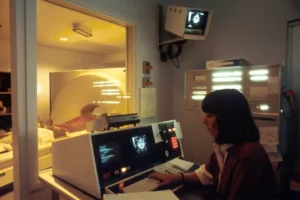
Ask for recommendations from your primary care physician, or contact local hospitals for referrals. Additionally, you can conduct an online search to find the right oncology in your area.
Popular platforms include Healthgrades, Vitals, National Cancer Institute’s Cancer Centers Program, and American Cancer Society’s “Cancer Resource Services” Directory.
Here are some renowned oncology care centers, their locations and services offered:
- Seattle Cancer Care Alliance: Seattle Cancer Care Alliance provides comprehensive cancer care, including diagnosis, treatment, and supportive services. Located in Seattle, Washington.
- Regional Cancer Care Associates: Regional Cancer Care Associates provides cutting-edge oncology services, clinical trials, and personalized cancer care. Multiple locations in New Jersey, Maryland and Connecticut.
- Astera Cancer Care: Specializes in advanced cancer treatments, including immunotherapy and precision medicine. Located in New Jersey.
- Blue Ridge Cancer Care: Offers a multidisciplinary approach to cancer treatment, including radiation therapy, chemotherapy, and supportive care. Located in Virginia.
These oncology care centers are committed to providing top-quality cancer care, ensuring patients and caregivers receive the support they need throughout their cancer journey.
The Importance of Emotional Support for Cancer Caregivers
Cancer caregiving is an emotionally demanding role that can take a toll on caregivers’ mental and emotional well-being. It is crucial for caregivers to receive emotional support to ensure their own well-being.
Here are some reasons why emotional support is essential for cancer caregivers:
- Reducing stress: Caregiving can be overwhelming and emotionally draining. Emotional support provides an outlet for caregivers to share their feelings, fears, and concerns, reducing stress and preventing burnout.
- Validating emotions: Caregivers often experience a range of emotions, including guilt, anger, sadness, and frustration. Having a support system that understands and validates these emotions can help caregivers process and navigate them more effectively.
- Building resilience: Emotional support helps caregivers build resilience, enabling them to cope with the challenges that arise during the caregiving journey. It provides a safe space to gain perspective, learn coping strategies, and develop a sense of hope and strength.
- Empowering caregivers: Emotional support empowers caregivers by reminding them that their role is significant and valued. It encourages self-care, self-compassion, and a focus on their own well-being alongside their caregiving responsibilities.
Caregivers should actively seek emotional support through support groups, counseling services, or trusted friends and family members. By prioritizing their emotional well-being, caregivers can continue to provide unwavering support to their loved ones with cancer.
Resources for Cancer Caregivers and Patients: Support Groups, Counseling, and More
Caregivers and cancer patients have access to various resources that can provide additional support throughout their journey. Here are some resources worth exploring:
When facing the challenges of cancer caregiving, it is essential to know that you are not alone. Numerous resources are available to support both caregivers and patients. Here are five valuable resources that can provide guidance, assistance, and emotional support:
- American Cancer Society: The American Cancer Society offers a wide range of resources, including support groups, educational materials, and assistance in finding local services.
- CancerCare: CancerCare provides free professional counseling, support groups, educational workshops, and financial assistance for cancer patients and their caregivers.
- Family Caregiver Alliance: The Family Caregiver Alliance offers information, resources, and support for family caregivers, including those caring for individuals with cancer.
- National Cancer Institute: The National Cancer Institute provides comprehensive information on cancer research, treatment options, clinical trials, and supportive care resources.
- Hospice Foundation of America: The Hospice Foundation of America offers resources and support for individuals caring for loved ones in hospice care, including educational materials and access to local hospice services.
By utilizing these resources, caregivers and patients can access the support they need to navigate the challenges of cancer care.
Conclusion
Cancer caregivers are the unsung heroes who provide unwavering support, empathy, and strength throughout every step of the patient’s journey.
From chemotherapy sessions to end-of-life care, they play an essential role in ensuring the well-being of their loved ones.
By understanding the challenges and adopting strategies to provide physical, emotional, and nutritional support, caregivers can make a significant difference in the lives of cancer patients.
It is crucial for caregivers to seek their own emotional support and utilize available resources to maintain their own well-being.
Together, caregivers and patients can navigate the complexities of cancer care, creating a supportive and compassionate environment for the journey ahead.
You may also want to explore these articles about thyroid cancer symptoms resources and caregiver tips, follicular lymphoma, and finding respite care services in your area to address the physical and emotional needs associated with cancer.
Are you searching for a compassionate caregiver with experience in caring for diabetic patients, feel free to contact me here or you find a caregiver in your area.
Frequently Asked Questions (FAQs)
What is terminal cancer?
Terminal cancer refers to an advanced stage of cancer where the disease has progressed to a point where it is unlikely to be cured or controlled effectively by treatment.
What is palliative care for cancer?
Palliative care for cancer is a specialized medical approach focused on providing relief from the symptoms and stress associated with cancer and its treatment. The primary goal is to enhance the quality of life for both the patient and their family
How can I find an oncology facility near me?
Finding an oncology facility near you can be done by conducting an online search, asking for recommendations from your primary care physician, or contacting local hospitals for referrals.
What can I do to prevent caregiver burnout?
To prevent caregiver burnout, it is crucial to prioritize self-care. Take breaks, seek respite care services, maintain a healthy lifestyle, and consider seeking professional counseling or therapy to manage your emotions and stress levels effectively.
How can I access emotional support as a cancer caregiver?
There are several resources available for cancer caregivers to access emotional support. Support groups, counseling services, and organizations like the American Cancer Society, CancerCare, and the Family Caregiver Alliance offer valuable assistance and guidance.
Note: This article is intended for informational purposes only and should not be taken as medical advice. It is always recommended to consult with a healthcare professional for personalized guidance, treatment and care plans.

